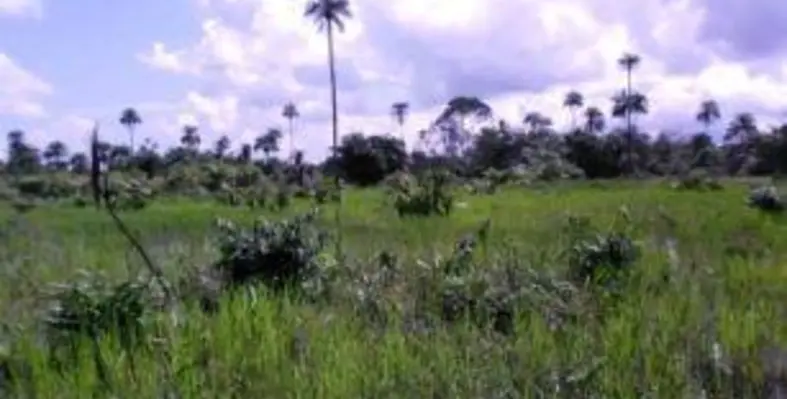Bringing mine water management standards in line with global best practice is becoming a priority for mines in Sierra Leone, as the country rebuilds itself and looks to attract mining investment to boost economic opportunities
In Sierra Leone recently to advise a mining client on water quality monitoring, I was impressed by the commitment to raising the bar with respect to water management in mining – not just among companies but also among government officials, academia and ordinary citizens. There are a range of laws that need to be taken into account when working in the field of environmental and social impact assessment, but some of the mines have previously been exempt from meeting these requirements. That is now changing, and mines want to get up to speed with global best practice.
The country’s Environment Protection Agency is the key player in this space from a regulatory point of view, and must monitor and coordinate the implementation of the country’s environmental policy. The Mine and Minerals Act makes it a strict requirement that all mining licence holders – from small to large operations – must acquire environmental impact licenses.
Environmental concerns
One of the vital concerns of any environmental impact study is to ensure that mining operations do not impact negatively on the supply of water in villages in the immediate vicinity. The country’s high rainfall means that there will usually be a shallow aquifer associated with the weathered rock (saprolite) layer, and the water quality from these sources is generally very good. Rural communities in Sierra Leone are mainly dependent on these shallow groundwater resources as their potable water supply, accessed by village wells that are usually hand-dug. This is because surface water is more quickly impacted by contaminants, so is less reliable as a clean source for human consumption. These shallow aquifers are vulnerable to contamination, e.g. from pit latrines.
Mining activities, including tailings or waste rock dumps up-gradient of community settlements, can also impact on the shallow groundwater water quality. And of course it’s not just the human environment. As the groundwater decants into a wetland or spring, we need to be sure that it is not going to have an impact on these sensitive aquatic ecosystems.
Regular and ongoing monitoring of water quality and levels must therefore become an integral part of all mining operations in Sierra Leone, as they move to embrace best practice in environmental protection. Water quality is an important mandate of the Environment Protection Agency, alongside its other key focus areas including effluent limitations, air quality.
Installing monitoring boreholes in advance of mining expansions allows a baseline of data to be generated, against which future water quality can be monitored. The University of Sierra Leone is also being drawn into the project, involving chemistry students to assist with monitoring and helping them learn practical skills alongside their university studies.
The Mine and Minerals Act also places obligations on mines to make social and economic contributions to the sustainability of the communities they affect, and to consult when developing a closure plan for when mining operations must cease. Here, there have been some innovative and constructive interventions.
Rehabilitation and community engagement
In the context of heavy minerals mining, which is essentially a chemically benign process, large dredge lakes are established from which the heavy minerals are extracted. These sites have been successfully converted to fishing enterprises after mining is completed, being stocked with tilapia fish, for example, to support sustainable local enterprise and food requirements.
In drier areas like Botswana, options like this are seldom possible. The water in a pit lake in an arid environment is usually subject to high levels of ‘evapo-concentration’; high levels of evaporation lead to a concentration of impurities in a water body, and it becomes very difficult to rehabilitate the water source or to put it to any alternative use.
Sierra Leone has the benefit of having a range of well-skilled people available to do the necessary environmental protection work that will ensure the sustainability of the mining sector in that country. Speaking to scientists at the university, it is clear that they are champing at the bit to put their expertise to work in these economically important spheres. They realise that mining investment needs a good supply of local mining-related expertise, but also that the same level of skill must be applied to mitigating any negative impacts that mining could bring.
Communities are certainly doing their bit. In a rehabilitation programme that I witnessed, trees were being planted in large numbers for medicinal and other use. A locally-developed drip irrigation system had been engineered for the young saplings, using bamboo stems grown nearby. The whole community was involved in this project, in a range of activities including carrying topsoil and compost – on people’s heads – to the trees. I was particularly impressed by the unity of purpose, despite the disruptive impact of the civil war.
What Sierra Leone needs is the resources, the equipment and some guidance on implementing best practice; from my experience, there is no lack of motivation and commitment among those who are trained in their specific fields of expertise to implement the necessary plans. Of course, funding is always a challenge, but in the long run it will be vital to put sufficient resources into implementing and enforcing environmental regulations if the country’s mining sector is to prosper.
Another encouraging sign was Sierra Leone’s first mining indaba, held last year in the capital Freetown, and showing the world its intention to leverage its mineral wealth in growing the economy.
Diane Duthe, partner and principal hydrogeologist, SRK Consulting (SA)












